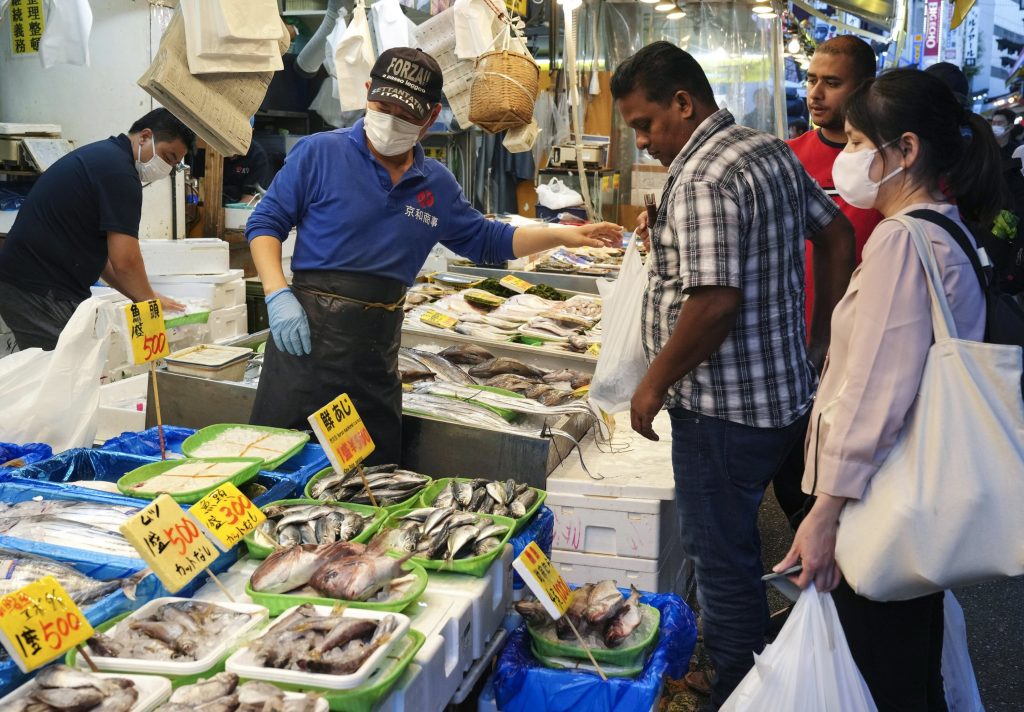A virtual “fish” war has started between Japan on one hand and Russia and China on the other. It has been triggered by Russia’s decision 16 October to follow its ally China in suspending all Japanese seafood imports over Tokyo’s release of wastewater from the crippled Fukushima nuclear plant.
Rosselkhoznadzor, Russia’s body responsible for regulating agriculture products, sought to explain the step as nothing but a “precautionary,” provisional quality control measure to temporarily restrict the import of fish and seafood products from Japan. But experts smell a conspiracy by both Russia and China to use the opportunity to punish Japan for its support to the US-led military and strategic campaigns against the two countries. Japan has reasons to suspect so since Russia has not taken kindly its support to Ukraine in the war with Russia. Its relations with China have also considerably deteriorated.
In 2011, three reactors at the Fukushima-Daiichi nuclear facility in north-eastern Japan went into meltdown following a massive earthquake and tsunami that killed around 18,000 people. Twelve years on, in August Japan began discharging treated contaminated water from the stricken plant into the Pacific Ocean.
China in response banned all Japanese seafood imports over the ‘selfish’ and ‘irresponsible’ release, accusing Japan of treating the sea like a ‘sewer.’ But, Japan has brushed aside China’s reservations insisting that the operation is safe. It has also claimed the International Atomic Energy Agency has certified that the water has been properly treated. According to Japan, the diluted radioactive wastewater has been released into the ocean eliminating chances of any harm being caused by it.
However, the wastewater discharges, which are expected to continue for decades, have been strongly opposed by fishing groups and neighbouring countries including South Korea, where hundreds of people have protested. China seized the opportunity to settle scores with Japan and banned all imports of Japanese seafood the day the release began in August. This has been badly hurting Japanese seafood producers and exporters.
The Japanese Foreign Ministry said its senior officials notified the Russian Embassy in Tokyo that Japan has been providing transparent and scientific explanations about safety of the treated water released from the Fukushima plant and Japanese seafood. The ministry also said the Japanese side sincerely and politely responded to Russia’s abrupt request for a dialogue last week on the issue by submitting documents. The ministry called Moscow’s restrictions unjust and demanded their withdrawal.
To Japan’s credit, it has invited experts from the IAEA who reviewed the safety of the wastewater release. Their conclusion is that if carried out as planned, the release would have a negligible impact on the environment, marine life and human health. A team of IAEA experts from China, South Korea and Canada is set to conduct sampling of seawater and marine life at and near the plant this week as well to allay fears.
Japan has begun emergency measures to tackle the ban and suspension of import of seafood by China and Russia. It has set up a relief fund to help find new markets and reduce the impact of the ban. Measures also include the temporary purchase, freezing and storage of seafood and promotion of seafood sales at home.
Before the ban, China was Japan’s biggest market for fish, accounting for more than $500 million worth of exports in 2022. Russia is much less important for Japan, accounting for around $1.7 million worth of marine product exports in 2022. In fact, a lot more seafood — $1.04 billion — went the other way from Russia to Japan.
But, the facade of a trade war masks the political tension and mutual suspicion gripping Japan’s relations with both Russia and China. The two latter countries have come closer in the wake of the Ukraine war. Things have come to such a pass that Japan’s close ally, the US, has gone out of its way to back Tokyo. When the US ambassador to Japan publicly ate fish from the Fukushima area, it was more than a symbolic act. He sought to underscore the fact that the US, with the help of Japan and its other allies in Asia, is determined to take on both China and Russia.
Fish as a business is sure getting fishy.
